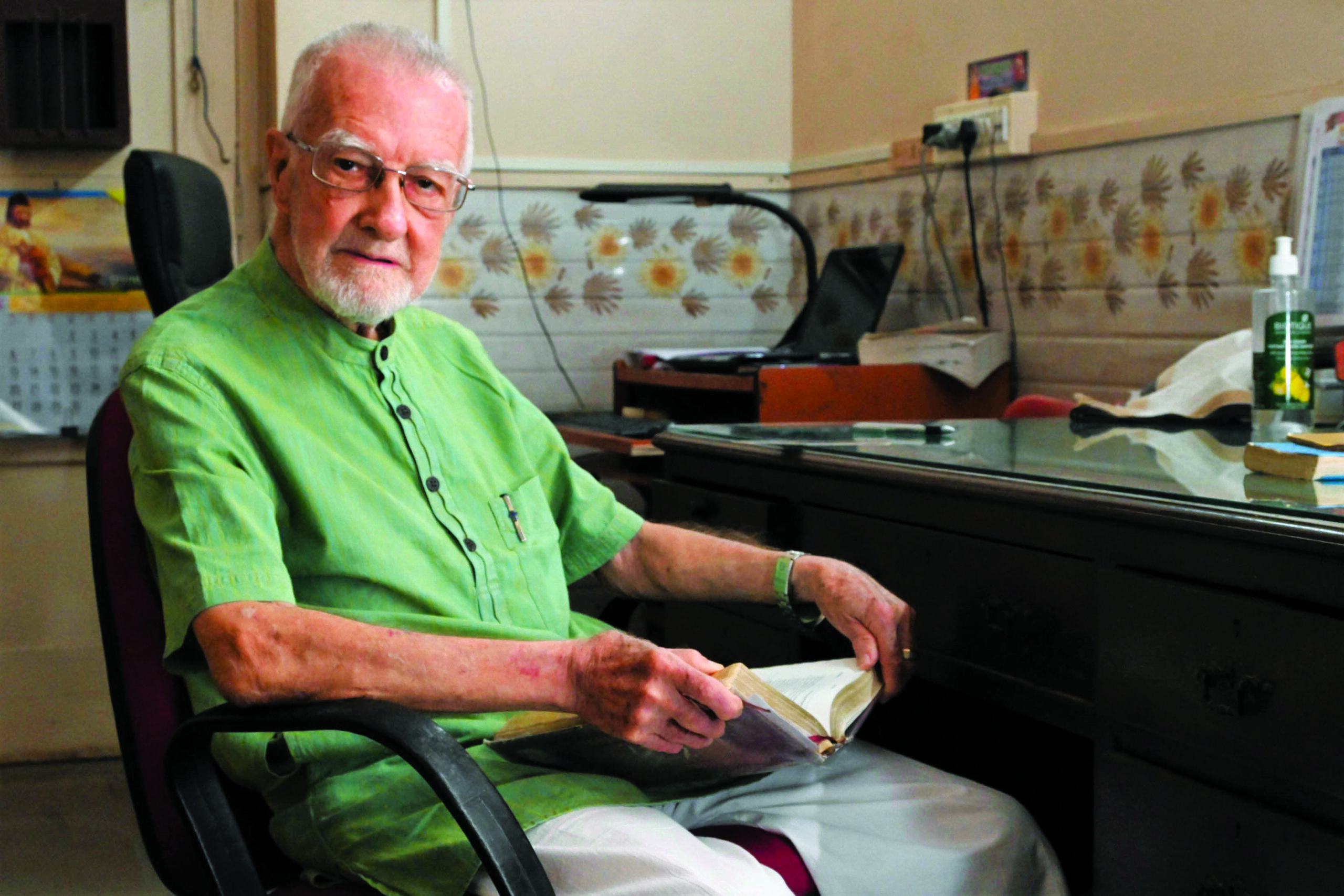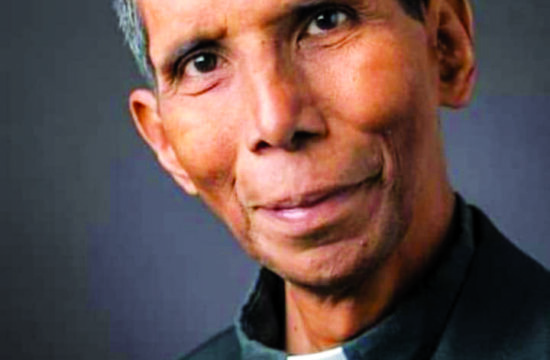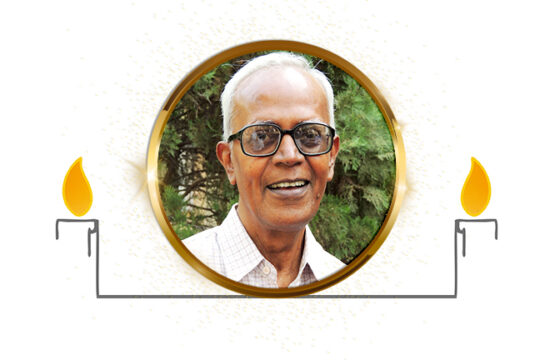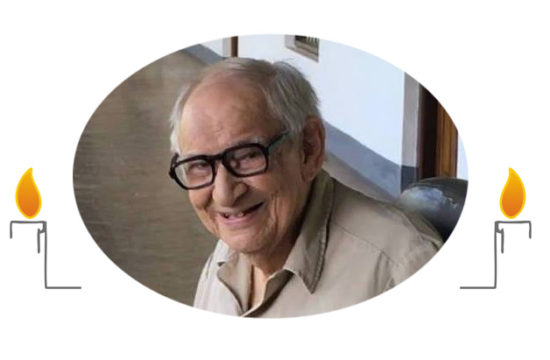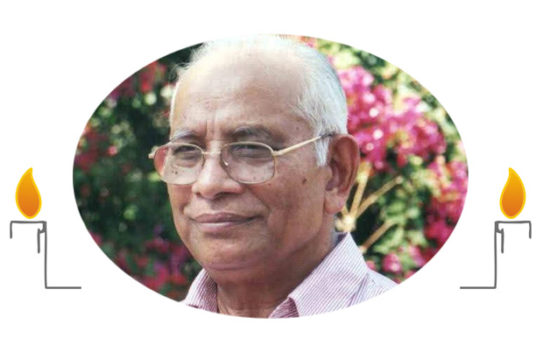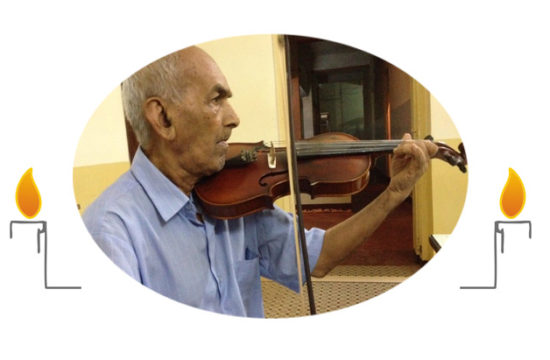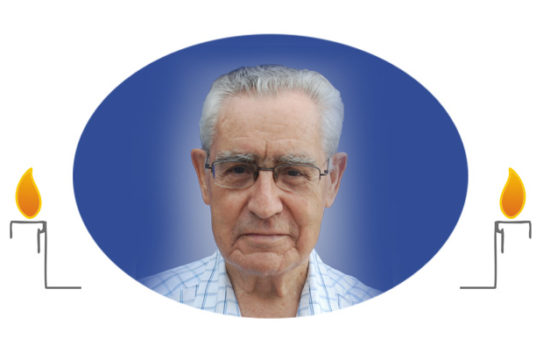The Spanish Jesuits I know who worked and are still working in the Bombay and Gujarat Provinces have come, as far as my knowledge goes, from the Spanish regions of Castile, Aragon, Catalonia, Valencia, and the Basque Country. It was a big surprise to learn that one of them, Fr Philip Terrasa, perhaps the only one, came from Andalusia, from what was once the Land of the Moors in southern Spain! My guess is that the uniqueness of Terrasa, known especially for his Retreat Ministry, originates from the culture of the region he was born in, as also, without doubt, from his personal history as a Jesuit.
It seems to me that most Jesuits claim notoriety while alive, and get famous and honoured only after their funeral eulogy. One of the big exceptions is surely Philip, for decades before his fourscore and ten years, he was very well known and very much sought after as a counsellor, spiritual guide and a great Retreat director. No one could miss his charming face, the kindly glint in his eyes, and a sense of determination in his gait. And though at the end he appeared slight in stature and needed a walking stick to negotiate the long corridors of Vinayalaya, he stood tall, firm and steadfast, in the graceful living out of the Jesuit Magis.
There are well known and sought after Jesuits, and at their funeral the Church is packed, and a long eulogy given and the burial is at a crowded graveyard. Rarely, though, is something written about them while they are still alive. I remember Nancy Vaz, a former Canossian Provincial, in almost these words, telling me: “Fr Philip is such a fatherly and motherly figure. Such a great Jesuit is rare among the Jesuits today. There is grace around him and his very presence makes one feel good and comfortable.”
His age and increasing bouts even with serious illness did not diminish his availability, not only to priests and religious but also to lay individuals and groups. My own limited, though deep encounters with him, must be very similar to those of many others; he gave the impression of being very cultured, respectful and attentive, without curiosity to the information given, focused on the spiritual and psychological, and uninterested in the mundane.
It is noticed that the natives of various regions in Spain, like the Castilians, Catalonians and Basques, have characteristics that may cause conflicts, but they all easily get along with the Andalusians who have their own remarkable features, none of them off-putting. Islamic Sufism and Jewish Kabala Mysticism could not be nurtured and flourish in Andalusia unless its people had a natural inclination for the transcendental.
This gives reason to surmise why Philip to me does not appear to be a typical Jesuit, one principally involved in mission work, social activism, or in education as teacher or professor. He may have tested the educational waters during Regency in Baroda and South Mumbai, but all his life, after all the training that culminated in Tertianship, his appointments restricted him to what seems he was born for – the spiritual apostolate. He was at St Xavier’s High School as a Student Counsellor for 12 years; in De Nobili College and Jnana-DeepaVidyapeeth, Pune, as a Spiritual Father and Retreat Director for 18 years; in Vinayalaya as Spiritual Guide and, later, Director of the pre-novices and Director of Retreats for 18 years; in Nashik as Socius to the Novice Master for 1 year; at St Mary’s High School as Spiritual Guide of the Collegians and as Retreat Director for 2 years; at St Xavier’s High School, as Spiritual Guide of the Collegians, and Students’ Counsellor and Retreat Director for 3 years until, after a serious illness, he was permanently transferred in 2016 to Vinayalaya, as full time Retreat Director and Spiritual Guide.
He joined the Jesuits of the Aragon Province at the age of fifteen. Not long after his ordination was the start of Vatican II, and the whole atmosphere of the mid-sixties till the mid-seventies could not but help make him breathe in new trends, that not only floated through the Church but also those that embroiled the whole world, the ones, for example, that led to many students’ revolts. The charismatic movement was planted around this time, but Philip does not seem to have been moved by it. He was however definitely influenced by Liberation Theology that shaped his thinking and ministry. But he was, however much more influenced by what wafted in from Zen, Vipassana, Spirituality of Ignatius and Teresa of Avila. He told me that at an early age he was introduced to personal prayer by two Jesuits, Frs. Tort and Domenech, the latter mainly responsible for preparing him for the Novitiate. That initial initiation to prayer deepened over the years, and defined both his life and ministry.
In The Way of the Pilgrim, we learn that Ignatius and a Moor were kept from causing each other fatal harm by the ass on which Ignatius rode which, given free rein, chose a path that happened to keep them apart. Both were seeking spiritual truth, but other mixed motives got in the way. It is to Philip’s merit that his zeal never developed into zealotry, and he never allowed his strong views to interfere with his subject’s direct dealing with his Creator and Lord, and vice versa (cfr. Spiritual Exercises 2 and 15).
A Staff member in Vinayalaya told me, “He has a golden heart. He is always willing to help and reach out to others. A living saint.” On 7th February 2019 Philip celebrated his 90th birthday. On the decorated poster put up by the Juniors at Vinayalaya, was this phrase “90 years without slumbering”! A very apt description indeed of an intense, zealous, and wholesome Jesuit. This awareness had led me, just as a friend, to ask him a few questions when he was well enough to answer:
John Rose, SJ: What touched you the most that made you give yourself fully to God and his people?
Philip: Two things moved me very powerfully. One, my love for Jesus. I gave myself totally and radically to Him, just as He gave Himself to me. And, two, a burning desire to make Jesus known and loved by many who still do not know him.
What inspired you to join the Jesuits?
Philip: The lives of Jesuit Saints, and the opportunities I saw in the Society of Jesus to fulfill my desires and dreams.
How is it that many are attracted to have you as a Spiritual Father?
Philip: It’s not my merit but only God’s generosity that has endowed me with sensitivity to empathize, with courage to challenge and be firm, and all that with gentleness, understanding, patience and genuine love.
What is it that makes you so full of love and so ready to serve?
Philip: Faithfulness to regular personal prayer, deep intimacy with Jesus, and a constant awareness of the indwelling of the Three Divine Persons.
Would you like to share a God-experience with the JIVAN Readers?
Philip: As I was lying on the floor before the altar with my 22 companions at the beginning of the Ordination Service, I powerfully felt God picking me up as a pinch of dust and assuring me that with this pinch of dust He would touch many peoples’ lives. This is what I really am: a pinch of dust!
Note: Fr. Philip Terrasa, SJ passed away on the 1st of January, 2023 while this article on him awaited publication.
The author is Associate Professor and Administrator, Xavier Institute of Engineering, Mumbai, and Province Coordinator for Higher Education


